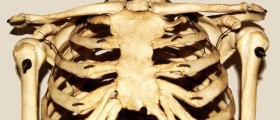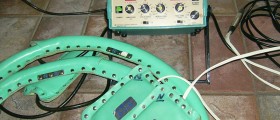
Vestibular neuronitis (vestibular neuritis) is a medical term for inflammation of the vestibular nerve. It occurs in a paroxysmal and single attack of vertigo or it can cause series of attacks, being a persistent medical issue that lasts no longer than 3-6 weeks. The person suffering from vestibular neuronitis develops unilateral vestibular dysfunction without auditory symptoms.
Why does It Occur?
Acute vestibular neuronitis is believed to be caused by a viral infection of the vestibular nerve. This nerve starts in the inner ear and ends in the brainstem. Up until now scientist have not managed to identify the exact virus responsible for this inflammation. Many patients suffering from vestibular neuronitis report a recent infection of the upper respiratory tract (e.g. flu or common cold). This is why doctors believe that such viruses can be associated with the condition. However, some patients have no viral symptoms prior the onset of the vertigo attack. Because of that there is one more thesis regarding the underlying cause of vestibular neuronitis. Namely, it may be that acute localized ischemia of the nerve leads to its inflammation and characteristic symptoms of the disease.Vestibular Neuronitis Clinical Characteristics
This medical condition typically leads to sudden vertigo accompanied by nausea and vomiting. Vertigo may linger for several days or weeks. In more severe cases vertigo affects patients for months. The condition is never associated with auditory problems, therefore, it never results in loss of hearing.
Diagnosis and Treatment for Vestibular Neuronitis
Vestibular neronitis is sometimes baffling and may resemble a cerebrellar or brainstem stroke. Apart from symptoms the patient is complaining about, spontaneous nystagmus and unsteadiness may drive the doctor to assume that the person is suffering from vestibular neuronitis. It is essential to distinguish true vertigo from other types of dizziness. After that doctors also must rule out central vertigo by careful examining patient's medical history, physical and neurological exam and some imaging studies.
People whose symptoms last for longer than a month require further testing including audiogram and ENG. By excluding auditory problems doctor can be more sure of vestibular neuronitis.
Treatment for vestibular neuronitis depends on causes that have led to inflammation of the vestibular nerve. Vestibular rehabilitation is a treatment of choice. This is a type of physical therapy which helps patients deal with unpleasant and debilitating symptoms such as dizziness and balance disorders. This treatment is highly effective. Unfortunately, certain number of patients develop complications associated with balance and equilibrium that linger for several months.





-and-Multiple-Sclerosis-Differences-And-Similarities_f_280x120.jpg)











Your thoughts on this
Loading...